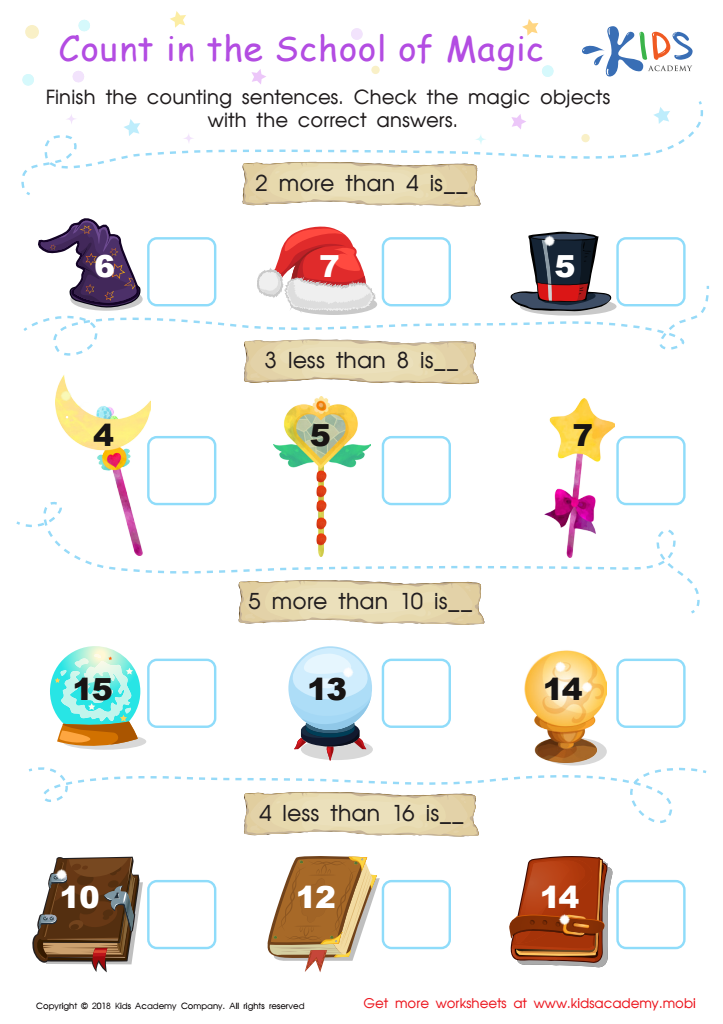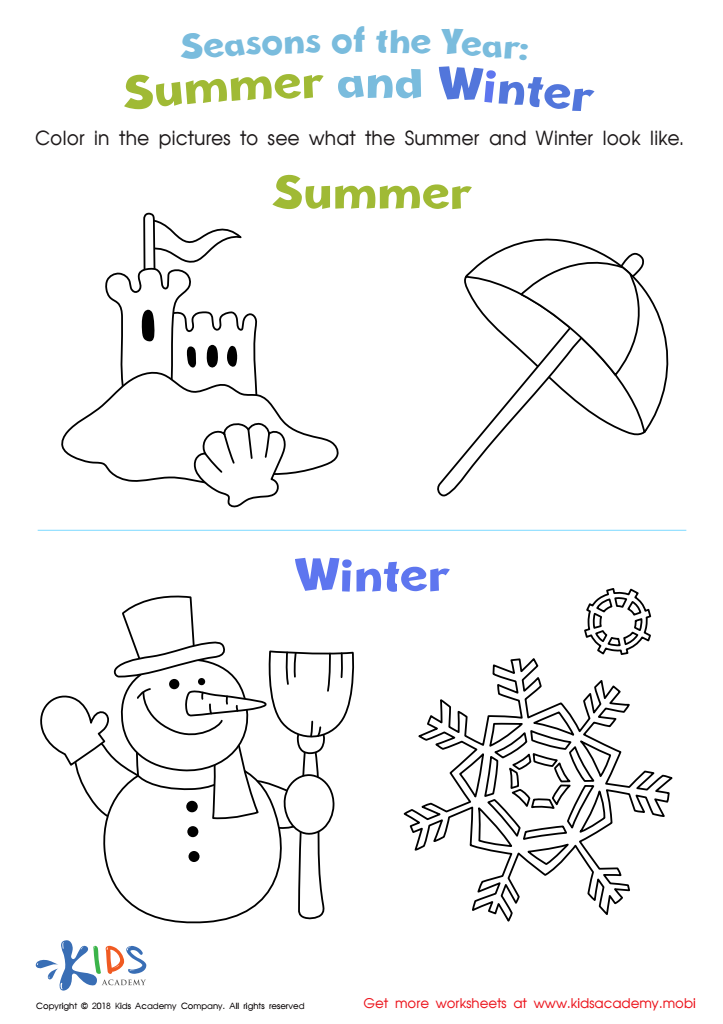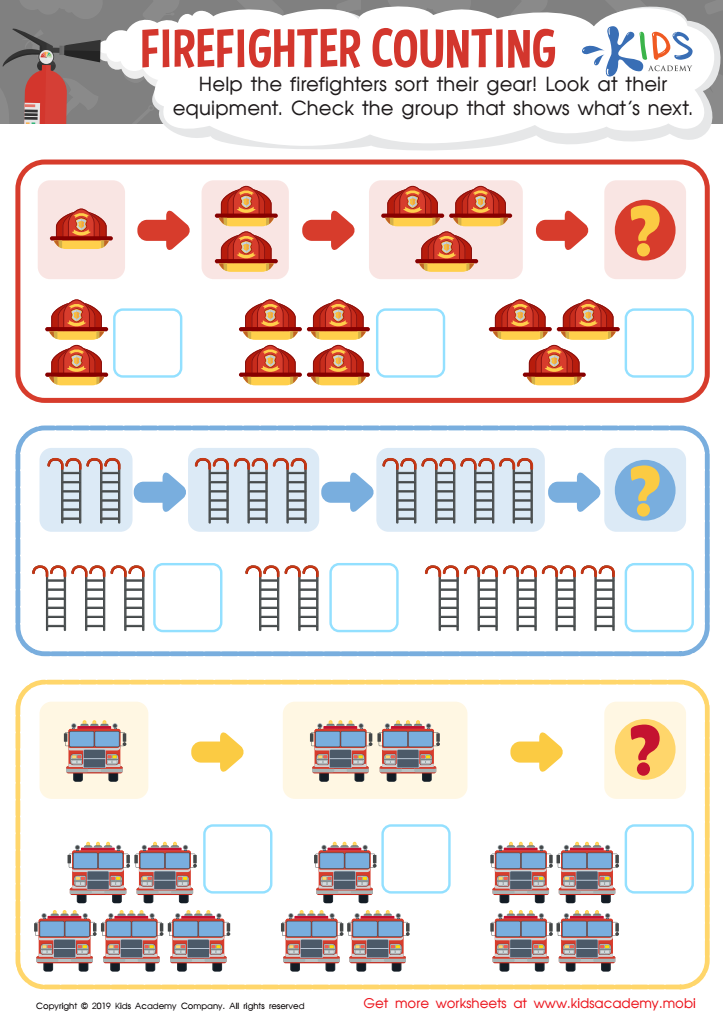Observational skills Easy Worksheets for Ages 4-5
3 filtered results
-
From - To
Boost your child's observational skills with our specially designed easy worksheets for ages 4-5! Each worksheet is crafted to help young learners enhance their attention to detail, critical thinking, and visual perception. Featuring fun, engaging activities and colorful illustrations, these worksheets provide an enjoyable way to develop vital skills for future learning. From spotting differences to matching and categorizing, your child will love the playful challenges. Perfect for both at-home practice and classroom use, these worksheets promote independent learning while building a strong foundation for academic success. Download and start exploring today!


Count in the School of Magic Worksheet


Summer and Winter Worksheet


Firefighter Counting Worksheet
Observational skills are important for children aged 4-5 because they form the foundation for learning and understanding the world around them. At this age, children are naturally curious and eager to explore. Developing observational skills helps them notice details, patterns, and changes in their environment. This ability to observe supports their cognitive development, which includes learning how to think, reason, and problem-solve.
For parents and teachers, encouraging strong observational skills is beneficial for several reasons. Firstly, it enhances children's focus and attention. When children pay closer attention, they learn more effectively and can remember information better. Secondly, good observational skills are linked to improved language development. As children observe and describe what they see, they expand their vocabulary and improve their communication abilities.
Moreover, observational skills are essential for early scientific thinking. Children who are encouraged to observe may ask more questions and develop a keen interest in subjects like nature, science, and math. By practicing these skills, children learn to apply critical thinking and curiosity, which are important throughout their lives.
In conclusion, by fostering observational skills in young children, parents and teachers set the groundwork for lifelong learning, curiosity, and a better understanding of the world.
 Assign to My Students
Assign to My Students




















